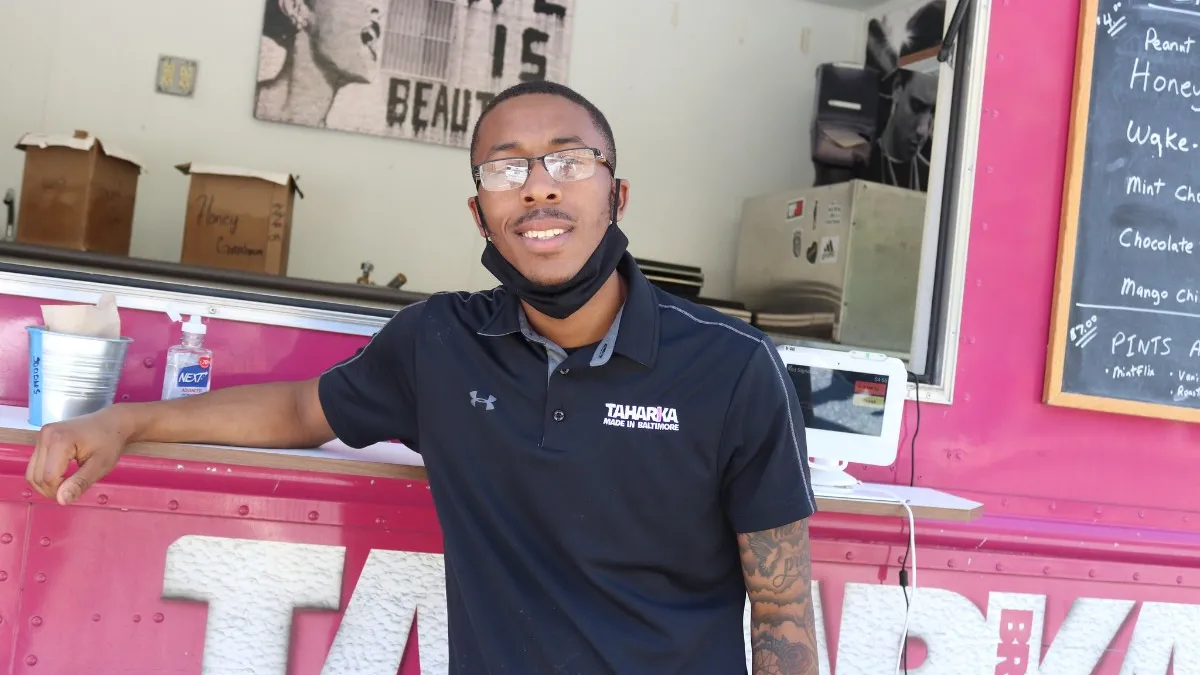Dive Brief:
- Nearly 90% of Black restaurant employees have experienced at least a 50% decline in tips since the start of the pandemic began, compared to 78% of all restaurant employees, according to a new report from labor advocacy organization One Fair Wage. Seventy-three percent of Black workers also said customers tipped them less for enforcing safety protocols, versus 62% of White workers.
- The report states that though Black workers represent a majority of the tipped service industry, they are making the least amount of money. The Washington Post also reports that Black foodservice workers' median earnings declined 3.5% in the past 24 months, the most among all racial groups. One Fair Wage's report finds that White workers wages increased prior to the pandemic.
- President Joe Biden has proposed raising the federal minimum wage to $15 an hour and ending the tip credit. One Fair Wage applauds this proposal in its report as a way to abolish "the racist subminimum wage" and increase "equity, health and safety" for Black tipped workers. But the National Restaurant Association argues it "imposes an impossible challenge for the restaurant industry" and will slow recovery.
Dive Insight:
Last week, the Senate approved an amendment to block Congress from raising the federal minimum wage to $15 an hour during the pandemic, which should assuage the NRA's concerns about imposing what it argues would be "a triple-digit increase in labor costs" during the pandemic.
But the debate isn't over — Democrats still aim to raise the minimum wage to $15 per hour over the next several years. This could be disruptive for tipped restaurant workers, who the NRA reports "generally earn between $19 to $25 per hour" thanks to tipped wages. But One Fair Wage's report shows that this level of income isn't a reality for all tipped restaurant workers.
The restaurant industry has sparred over the issue of minimum wage and the tip credit for years. There have been protests from One Fair Wage and Fight For $15 to increase the minimum wage, and there have been protests from servers against removing the tip credit as well. Washington, D.C., voted to overturn a ballot measure that would increase the minimum wage to $15 per hour for restaurant servers and other tipped workers in the District in 2018, and Maine reversed a measure to abolish the tip credit before it took effect in 2017. The Maine Restaurant Association opposed the measure because it would put financial pressure on local operators.
Efforts by restaurant companies in the past to eliminate tipping have been rocky. David Chang and Tom Colicchio have experimented with no-tipping models in the past before returning to tipped wages.
Major restaurant chains have been outspoken about the potential impact of Biden's plan. Last month, TGI Fridays CEO Ray Blanchette told CNBC that ending the tipped minimum wage would lead to reduced hours for employees and higher menu prices for customers. He added that the elimination of the tipped minimum wage would lead to significant wage disparities between servers and kitchen staff.
These concerns do not address existing earnings disparities for tipped restaurant staff of different ethnicities, however.









